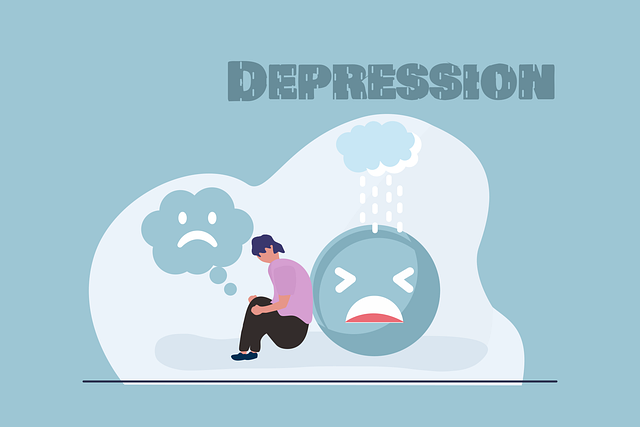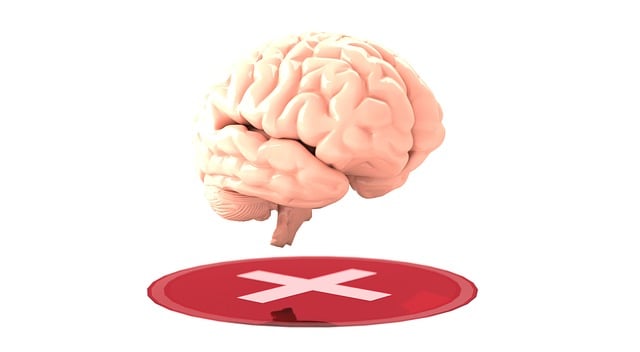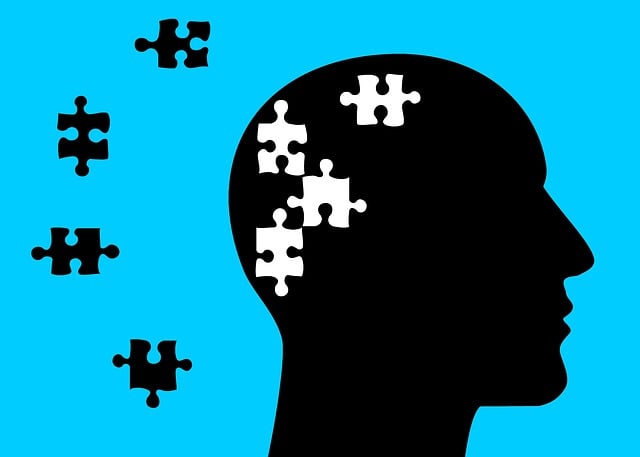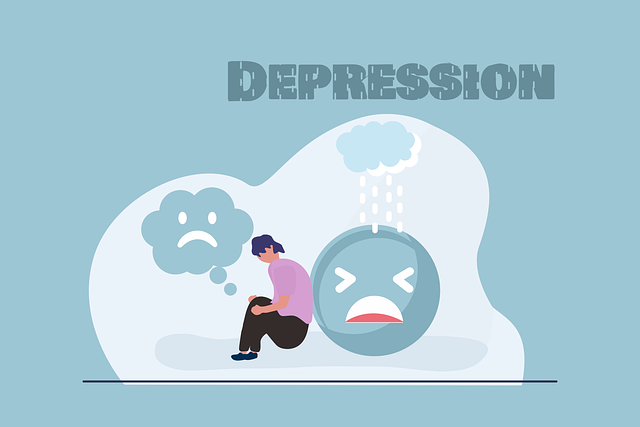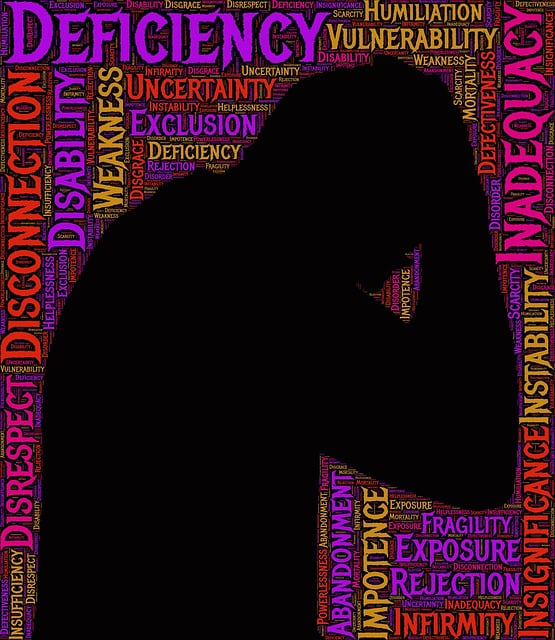Depression arises from a complex interplay of factors, with major life transitions serving as both triggers and opportunities for growth. Effective management involves therapy like CBT and IPT, addressing negative thought patterns. Golden Major Life Transitions Therapy focuses on proactive strategies during stressful events, fostering emotional resilience through communication, self-care (exercise, diet, sleep), and mindfulness practices. Journaling is a valuable tool within this therapy, promoting self-reflection and coping mechanism development. Regular physical activity, sleep hygiene, and professional support significantly enhance mental resilience, preventing depression during life's challenges.
Depression is a prevalent and serious mental health concern, but it’s not an insurmountable challenge. Understanding its triggers, especially those tied to major life transitions, is crucial for prevention. This article delves into effective strategies to combat depression, focusing on managing stress and anxiety through therapy options and self-care practices. We explore the role of golden major life transitions as potential catalysts for mental health growth, emphasizing the power of resilience in navigating life’s ups and downs with enhanced well-being.
- Understanding Depression and Its Triggers
- The Role of Major Life Transitions in Mental Health
- Golden Strategies for Coping with Stress and Anxiety
- Exploring Therapy Options for Prevention and Treatment
- Building Resilience: Lifestyle Changes and Self-Care Practices
Understanding Depression and Its Triggers

Depression is a complex mental health disorder that significantly impacts an individual’s daily life and well-being. It often arises from a combination of biological, psychological, and environmental factors. Understanding these triggers is crucial in preventing and managing depression. One of the key areas to focus on is Golden Major Life Transitions, which can serve as both catalysts for depression and opportunities for growth and resilience. These transitions, such as major life changes, loss of a loved one, or severe stress, can lead to emotional turmoil if not handled effectively.
Therapy, particularly cognitive-behavioral therapy (CBT) and interpersonal therapy (IPT), is a powerful tool in identifying and modifying negative thought patterns and improving coping strategies. Mind Over Matter Principles emphasize the power of our thoughts and beliefs, encouraging individuals to challenge and change distorted thinking that can contribute to depression. Additionally, Public Awareness Campaigns Development plays a vital role in reducing stigma and fostering an environment where people feel comfortable seeking help. Access to Trauma Support Services is also essential, as unresolved trauma often lies at the root of many mental health issues, including depression.
The Role of Major Life Transitions in Mental Health

Major life transitions, such as losing a job, experiencing a breakup, or dealing with an illness, can significantly impact mental health. While these events are often seen as challenging, they also present opportunities for personal growth and emotional resilience. Golden Major Life Transitions Therapy focuses on helping individuals navigate these pivotal moments in their lives, fostering emotional well-being promotion techniques that build lasting strength and adaptability.
Effective communication strategies play a crucial role in this process. By openly discussing feelings and concerns with loved ones, therapists, or support groups, individuals can gain perspective, reduce feelings of isolation, and develop coping mechanisms. This proactive approach not only helps prevent depression but also equips people with valuable tools to persevere through life’s inevitable ups and downs, fostering a greater sense of control and overall well-being.
Golden Strategies for Coping with Stress and Anxiety

Dealing with stress and anxiety is a vital component of depression prevention, especially during major life transitions. The golden strategies for coping involve a blend of self-care practices and professional support. Engaging in regular physical activity, maintaining a balanced diet, and ensuring adequate sleep can significantly boost one’s mood and resilience. These foundational habits not only reduce symptoms of stress and anxiety but also enhance overall well-being.
Furthermore, therapy plays a crucial role, offering tailored techniques to manage triggers. Cognitive Behavioral Therapy (CBT), for instance, equips individuals with empathy-building strategies that foster understanding and compassion towards oneself and others. Developing emotional intelligence is another powerful tool; it helps in recognizing and managing feelings, thereby reducing the impact of stress. Confidence-boosting activities, such as setting achievable goals and practicing mindfulness, also contribute to a more positive mindset, making one better equipped to navigate life’s challenges.
Exploring Therapy Options for Prevention and Treatment

Depression prevention isn’t just about treating symptoms; it’s about fostering resilience and inner strength. Exploring therapy options like Golden Major Life Transitions Therapy can be a game-changer, offering tailored guidance for navigating life’s challenges. This form of therapy helps individuals build mental wellness by addressing underlying issues and providing tools to cope with stress and change.
One effective strategy within this approach is journaling, a powerful mental wellness journal exercise that allows for self-reflection and tracking mood shifts. By documenting thoughts and feelings, individuals can identify patterns, gain insights into their emotional states, and develop valuable coping mechanisms. This, in turn, strengthens their inner resilience, enabling them to face life’s transitions with greater equanimity and adaptability.
Building Resilience: Lifestyle Changes and Self-Care Practices

Depression prevention isn’t just about managing symptoms; it’s also about building resilience and adopting healthy lifestyle changes. Golden major life transitions, like losing a job or experiencing a breakup, can be significant stressors that contribute to depression. Therapy plays a crucial role in navigating these challenges by providing tools for stress management and emotional regulation.
Beyond therapy, engaging in regular physical activity, prioritizing sleep hygiene, and practicing mindfulness techniques can significantly boost resilience. These self-care practices not only promote overall well-being but also help individuals develop coping mechanisms to better handle difficult situations. By incorporating these strategies into daily routines, individuals can build a stronger foundation for mental health and resilience.
Depression prevention is a multifaceted approach, where understanding our triggers and adopting healthy coping mechanisms are key. Recognizing the impact of major life transitions on mental health, coupled with evidence-based therapy options, can significantly enhance our resilience. By integrating golden strategies for stress management and embracing lifestyle changes, we can actively build a buffer against depressive episodes. Combining these proactive steps with access to quality therapy ensures a comprehensive strategy to maintain well-being and navigate life’s challenges effectively.
